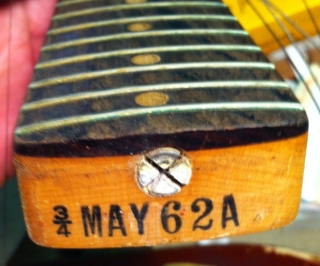 Row, row, row your boat
Row, row, row your boat
Gently down the stream.
Merrily, merrily, merrily, merrily,
Life is but a dream.
I was once again contemplating the idea of eternity tonight when suddenly, I became aware that the notes of this song were wafting through the air in my office. I had to laugh.
Already, I see the heads nodding. No, not in agreement with the humor I found in the juxtaposition of the song with thoughts of eternity. Heads are nodding in the realization that it has finally happened. The idiot has finally snapped. Gone over the edge completely.
Why would one be contemplating eternity? And, what in the world is funny about hearing a children’s song while contemplating such a peculiar subject?
Perhaps, we’ll consider just one thought at a time, okay?
I was an odd child, I will admit. At a very young age, I struggled internally with big ideas, while the everyday things went unnoticed. Perhaps all of us did, but I really can’t speak for anyone else. I know that eternity was one concept with which I wrestled many times. I would sit in church and sing the words of that last verse of “Amazing Grace” and I would be AWOL for the rest of the church service–lost deep in thought. “…Ten thousand years, bright shining as the sun…We’ve no less days…than when we’ve first begun.” How does that not mess with a kid’s head?
The idea of eternity terrified me. No, not the idea of Hell or Heaven, just the thought of a period of time that went on and on without ever ending. To a child of seven or eight, the concept was as foreign as having all the ice cream you could ever consume and no one ever making you stop eating it.
Everything came to an end.
Church services ended with “Amen.” Cowboy movies ended with the hero riding off into the sunset. Trips in the car ended with us pulling up to Grandma’s house and piling out of the old station wagon. The school year ended with all the kids walking out and throwing their papers in the wind to cover the playground.
Everything came to an end. Everything.
I never thought to talk about it with a grown-up. This was too big, too–I don’t know–sacred. You didn’t talk about such things; you just grappled with them until you could move on. I think eventually, I just decided that if the grown-ups in my life could face that terrifying endless and timeless uncertainty, so could I. Besides, Jesus would be there. I wanted to be where He was.
As an adult, I still want to be there.
I have come to realize though, that eternity is not only on the other side of that door we don’t want to talk about. It doesn’t begin with death. It didn’t even begin with our entry into this world at birth. Funny thing–if I had known it back then, my mind might have been boggled even more than it was. The reality is, eternity works both ways–both backwards and forwards. How’s that for an enigma?
We live smack-dab in the middle of eternity! We’re not waiting for it. We’re not looking forward to it. Eternity is now!
I’m not a kid anymore.
Today, I look to the future and I want to be sure that I’ve done everything I can do with this little piece of eternity that I been given to work with, here in this place and time. I’ll move on to another locale for the next part of it. Right here–right now–I have things that must be accomplished before this part of the eternal timetable moves on and I am no longer able to do what needs to be done. In some ways, I feel like Alice’s White Rabbit as he rushes about, terrified that he is late and will miss the very important date. Eternity is passing at a frighteningly rapid pace.
Those were the thoughts in my mind tonight as the little bit of doggerel you began with up above made its way into my consciousness. Talk about a dichotomy!
Life is but a dream.
The old children’s song lulls us to sleep, believing that our lot in life is nothing more than a summer afternoon’s outing on the quiet stream. All work together, rowing in cadence with those around, and everything will come out just fine. It almost seems apropos that the song is a round, the endless cycle sung repeatedly by all the voices, each one carrying on the hypnotic mantra, urging the boat’s occupants to move gently.
Don’t rock the boat! Don’t, for heaven’s sake, attempt to go upstream! “Happy, Happy, Happy!” I can just hear Phil Robertson’s (from Duck Dynasty) voice, calling out the words to keep the natives calm.
Life is but a dream? Okay, perhaps I wasn’t really amused. It wasn’t funny–“Ha-Ha”–just wildly inappropriate that the two ideas should enter my head at the same time.
I have noted that a number of my friends are attempting to slow down the pace of life a bit these days. “Don’t worry, be happy,” say their notes. Jettison the things that stress you; do only the things which make you feel good; friends who make demands on you aren’t really friends, so dump them.
How can we live the dream when rude people keep waking us up?
But, you see–that’s just the trouble with dreams. You always wake up. Reality intrudes. They end. Just like everything in that seven year old’s world a lifetime ago. Life isn’t a dream.
I’m kind of happy to know that it isn’t. I want to row upstream. I want to blaze paths where the placid stream doesn’t flow. And, eternity won’t wait; it just keeps moving through our lives, as it has for everyone else in all of recorded history.
Time to wake up and get busy!
I’ll take eternity, thanks.
“As if you could kill time without wounding eternity!”
(Henry David Thoreau~American philosopher/author~1817-1862)
“Yet God has made everything beautiful for its own time. He has planted eternity in the human heart, but even so, people cannot see the whole scope of God’s work from beginning to end.”
(Ecclesiastes 3:11)
© Paul Phillips. He’s Taken Leave. 2013. All Rights Reserved.










